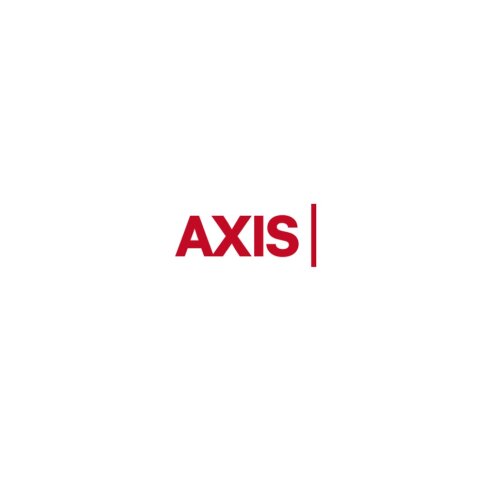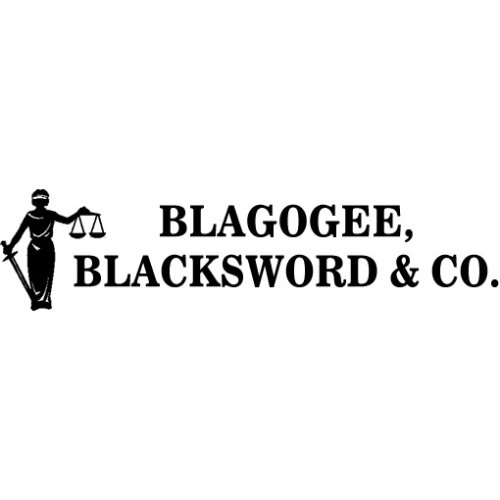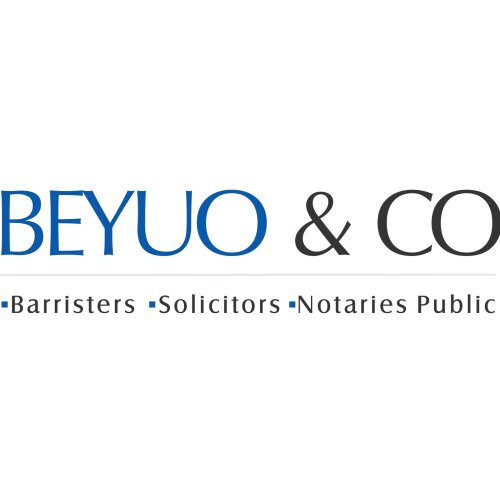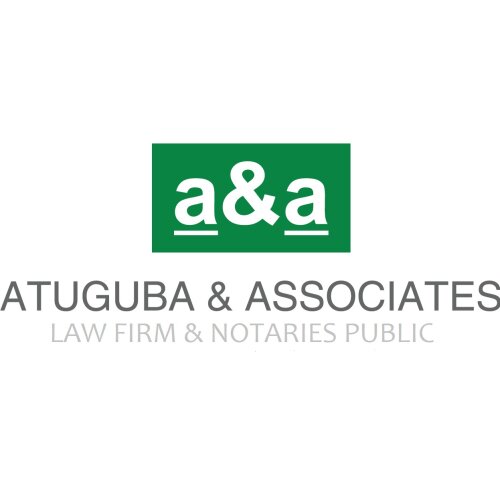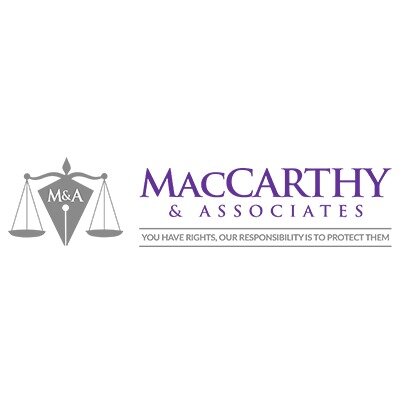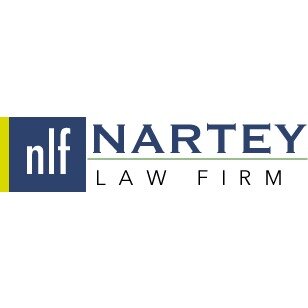Best Public-Private Partnerships (PPP) Lawyers in Accra
Share your needs with us, get contacted by law firms.
Free. Takes 2 min.
List of the best lawyers in Accra, Ghana
About Public-Private Partnerships (PPP) Law in Accra, Ghana
Public-Private Partnerships (PPP) in Accra, Ghana, refer to mutually beneficial arrangements between public sector entities and private sector companies for the financing, development, operation, and maintenance of public infrastructure or services. The goal of PPPs is to leverage private sector expertise, innovation, and capital to deliver public infrastructure projects such as roads, hospitals, water systems, schools, and energy facilities. In Ghana, PPPs are regulated to ensure transparent collaboration, equitable risk-sharing, and quality delivery of public services.
Why You May Need a Lawyer
PPPs often involve complex legal agreements and regulations that govern project structure, risk allocation, financing, procurement, and dispute resolution. Engaging a lawyer is critical in the following situations:
- You are a government agency or representative tasked with developing or managing PPP projects.
- You represent a private firm interested in bidding for or operating a PPP project.
- You require assistance with drafting or reviewing PPP contracts and related agreements.
- You are dealing with compliance, regulatory approvals, or due diligence processes.
- You are facing disputes regarding project execution, payment, or contract termination.
- You need advice on land acquisition, environmental clearance, or community involvement linked to the PPP project.
- You want guidance on financing or investment structuring for a PPP project.
- You must navigate issues related to taxation, ownership, or revenue sharing in PPPs.
Hiring a legal specialist ensures your interests are protected, all documentation is in order, and the project meets both national and local legal requirements.
Local Laws Overview
Ghana has established a regulatory framework to adequately manage PPP agreements. The legal foundations of PPPs in Accra and Ghana as a whole are grounded in several laws and policies, most notably:
- The Public Private Partnership Act, 2020 (Act 1039): This is the primary legislation governing all PPP activities in Ghana. It defines the roles and responsibilities of parties, the PPP project lifecycle, procurement processes, contract management, disclosure, and dispute resolution.
- The Public Procurement Act, 2003 (Act 663), as amended: This regulates procurement procedures that also apply to PPP transactions to ensure fairness and competitiveness.
- Sector Specific Laws and Guidelines: Projects in energy, water, roads, health, and other specific sectors may require compliance with distinct regulations and licensing conditions.
- Environmental and Land Use Regulations: These govern issues related to site selection, environmental impact assessment, and community engagement, especially for infrastructure projects.
Understanding and complying with statutory requirements is vital for the successful planning and delivery of PPP projects in Accra.
Frequently Asked Questions
What is a Public-Private Partnership (PPP)?
A Public-Private Partnership (PPP) is a collaborative agreement between a government agency and a private sector company to design, finance, build, operate, or maintain public infrastructure or services.
Who can participate in a PPP in Accra?
Government ministries, departments, and agencies, as well as eligible private sector firms (both local and international), can participate in PPP projects in Accra, subject to meeting qualification requirements.
What laws govern PPPs in Ghana?
The main legislation is the Public Private Partnership Act, 2020 (Act 1039). Other relevant laws include the Public Procurement Act and sector-specific regulations.
What types of projects are eligible for PPP?
Various infrastructure and service projects in sectors such as transport, water, energy, healthcare, education, and municipal services are commonly pursued as PPPs.
Is competitive bidding required for PPP projects?
Yes, the law generally requires PPP projects to be procured through open and competitive bidding. However, there may be exceptions under specific circumstances as outlined in the law.
How are risks shared in a PPP contract?
Risks are allocated between the public and private partners according to expertise, capacity, and ability to manage those risks efficiently, as stipulated in the PPP agreement.
Are foreign companies allowed to invest in PPPs in Ghana?
Yes, foreign companies may participate in PPPs, but they must comply with relevant Ghanaian laws regarding business registration, investment approvals, and sector-specific regulations.
How can disputes be resolved in PPP projects?
PPP disputes may be resolved through negotiation, mediation, arbitration, or litigation as specified in the contract and in accordance with Ghanaian law.
What is the approval process for a PPP project?
PPP proposals undergo rigorous evaluation, including technical, legal, and financial assessments, followed by approvals by sector ministries, the Ministry of Finance, and sometimes Parliament.
What support does the government provide for PPP projects?
Government support may include guarantees, viability gap funding, or fiscal incentives to increase the attractiveness and feasibility of PPP projects.
Additional Resources
When seeking more information or assistance regarding PPPs in Accra, the following resources can be helpful:
- Public Investment and Asset Division (PIAD) of the Ministry of Finance: Oversees PPP policy, project approval, and capacity building.
- Ghana Investment Promotion Centre (GIPC): Provides guidance and incentives for foreign and local investors in PPP projects.
- Sectors Ministries, Departments, and Agencies (MDAs): Such as the Ministry of Roads and Highways, Ministry of Energy, and Ministry of Water Resources.
- Ghana Infrastructure Investment Fund (GIIF): Mobilizes financial resources for infrastructure projects in Ghana, including PPPs.
- Legal practitioners and law firms in Accra: Specialize in PPP advisory and project documentation.
Next Steps
If you are considering participation in or legal guidance on a PPP project in Accra, Ghana, take the following steps:
- Identify your specific needs or concerns related to the PPP project.
- Consult with a lawyer who specializes in public infrastructure, project finance, and PPP law.
- Gather and organize all documentation relevant to your participation or inquiry.
- Contact the Public Investment and Asset Division (PIAD) or the relevant sector ministry for project-specific information and approvals.
- Engage in capacity-building workshops or seminars hosted by government agencies or industry organizations to increase your understanding of PPP frameworks in Ghana.
Having the right legal advice will ensure that your interests are protected at every stage, from project development and negotiation to implementation, management, and dispute resolution.
Lawzana helps you find the best lawyers and law firms in Accra through a curated and pre-screened list of qualified legal professionals. Our platform offers rankings and detailed profiles of attorneys and law firms, allowing you to compare based on practice areas, including Public-Private Partnerships (PPP), experience, and client feedback.
Each profile includes a description of the firm's areas of practice, client reviews, team members and partners, year of establishment, spoken languages, office locations, contact information, social media presence, and any published articles or resources. Most firms on our platform speak English and are experienced in both local and international legal matters.
Get a quote from top-rated law firms in Accra, Ghana — quickly, securely, and without unnecessary hassle.
Disclaimer:
The information provided on this page is for general informational purposes only and does not constitute legal advice. While we strive to ensure the accuracy and relevance of the content, legal information may change over time, and interpretations of the law can vary. You should always consult with a qualified legal professional for advice specific to your situation.
We disclaim all liability for actions taken or not taken based on the content of this page. If you believe any information is incorrect or outdated, please contact us, and we will review and update it where appropriate.



